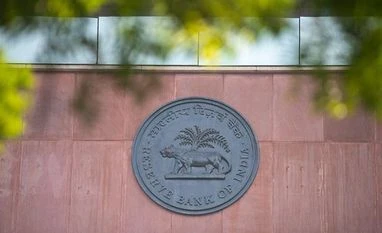Amid fears of a third wave of coronavirus pandemic and hardening of retail inflation, the Reserve Bank is likely to maintain status quo on interest rate and watch the developing macroeconomic situation for some more time before taking any decisive action on monetary policy.
The RBI is scheduled to announce its bi-monthly monetary policy review on August 6 at the end of the three-day meeting -- August 4-6 -- of the Monetary Policy Committee (MPC).
The RBI Governor-headed six-member MPC decides on the key policy rates. The panel had left the rates unchanged last time citing concerns on inflation.
"Higher commodity prices and rising global prices post the robust recovery in a few industrial countries will have implications on production costs. We expect the RBI to be in a wait-and-watch mode as it has limited elbow room to manoeuvre monetary policies," opined Rumki Majumdar, Economist, Deloitte India.
Shriram Transport Finance Managing Director and CEO Umesh Revankar too said the central bank will keep the repo rate at the present level despite higher inflation.
"The rise in inflation is because of the fuel prices, which will get normalise (in sometime), and the inflation pressure will ease," Revankar said.
Also Read
The Reserve Bank, which mainly factors in the retail inflation while arriving at its monetary policy, has been mandated by the government to keep Consumer Price Index (CPI) based inflation at 4 per cent with a margin of 2 per cent on either side.
Inflation ruled above the tolerance band during June-November 2020 and has again moved above the upper tolerance threshold in May and June 2021.
The sense is that inflation will persist at these elevated levels for some months before easing in the third quarter of 2021-22 when the kharif harvest arrives in markets, a recent RBI article said.
Ranen Banerjee, Leader - Economic Advisory Services, PwC India said that given the status quo stance taken by the US FOMC as well as other major monetary authorities with the inflation being viewed as transitory, "we can expect a similar status quo announcement by the MPC too".
Growth concerns and weak demand conditions owing to impact of second wave of Covid on employment and declining labour force participation rate combined with nervousness of a possible third wave, puts constraints on any change in stance by the MPC, he said.
Further, tranches of GSAPs and OMOs can be expected to keep the yield on G-Secs from rising as there is a constant upward pressure on it owing to higher borrowing programme of government and inflationary pressures, Banerjee said.
A BofA Global Research report said: "We expect the RBI MPC to look through the transitory hump in inflation and stick with a unanimous dovish pause in the upcoming August 6 policy. The MPC is likely to revise up its FY22 average CPI inflation forecast slightly from the previous 5.1 per cent and flag potential upside risks."
As per a research report by Radhika Rao, Economist at DBS Group Research, the six-member monetary policy committee will adopt a wait-and-watch mode in August.
"Policy commentary is likely to draw confidence from the turnaround in recent data but express caution over a potential third Covid wave," it said.
The CPI-based retail inflation was 6.26 per cent in June and 6.3 per cent in the previous month.
After the June MPC meet, the Reserve Bank of India had left the benchmark interest rate unchanged at 4 per cent. It was for the sixth time in a row that the MPC maintained status quo on interest rate.
(Only the headline and picture of this report may have been reworked by the Business Standard staff; the rest of the content is auto-generated from a syndicated feed.)
)